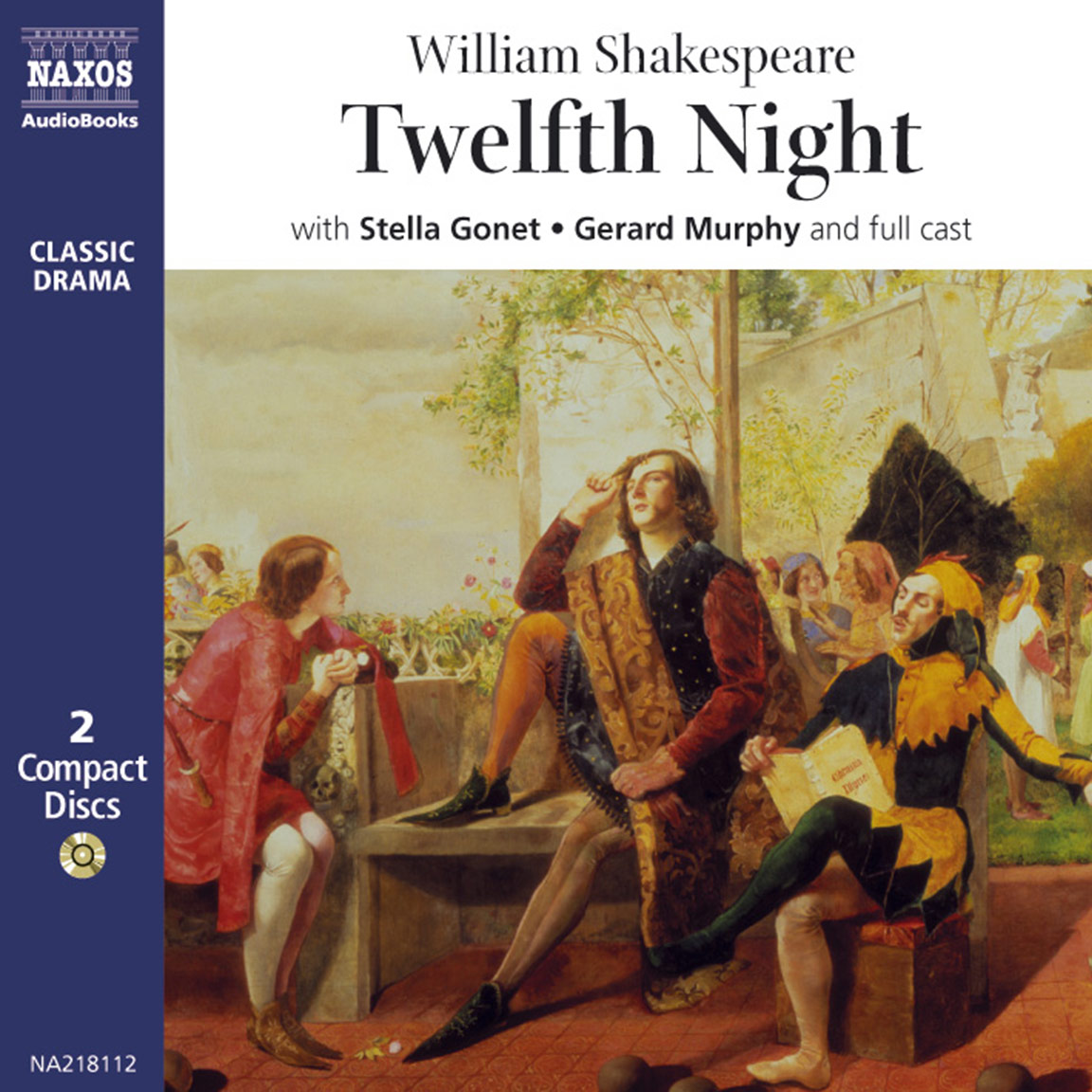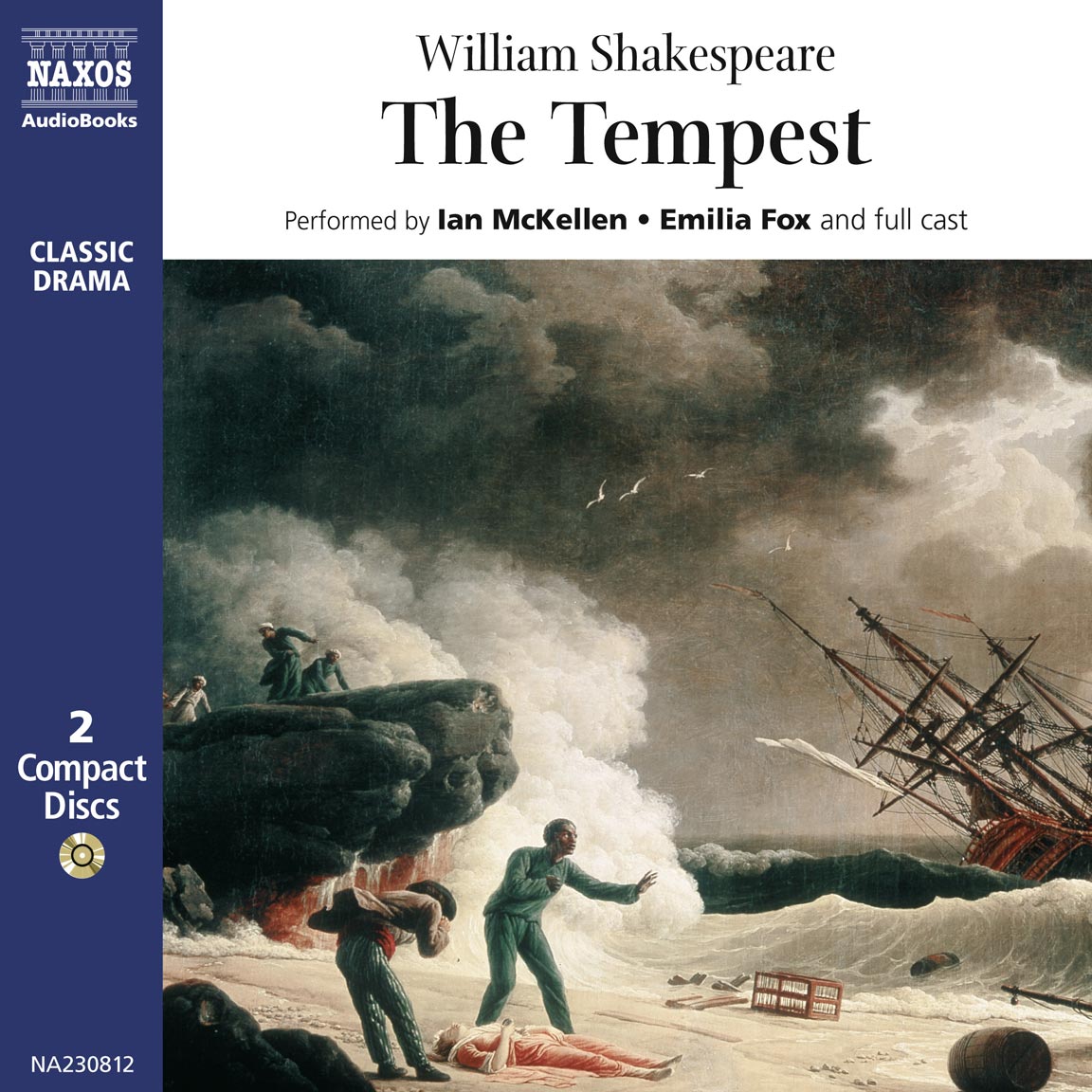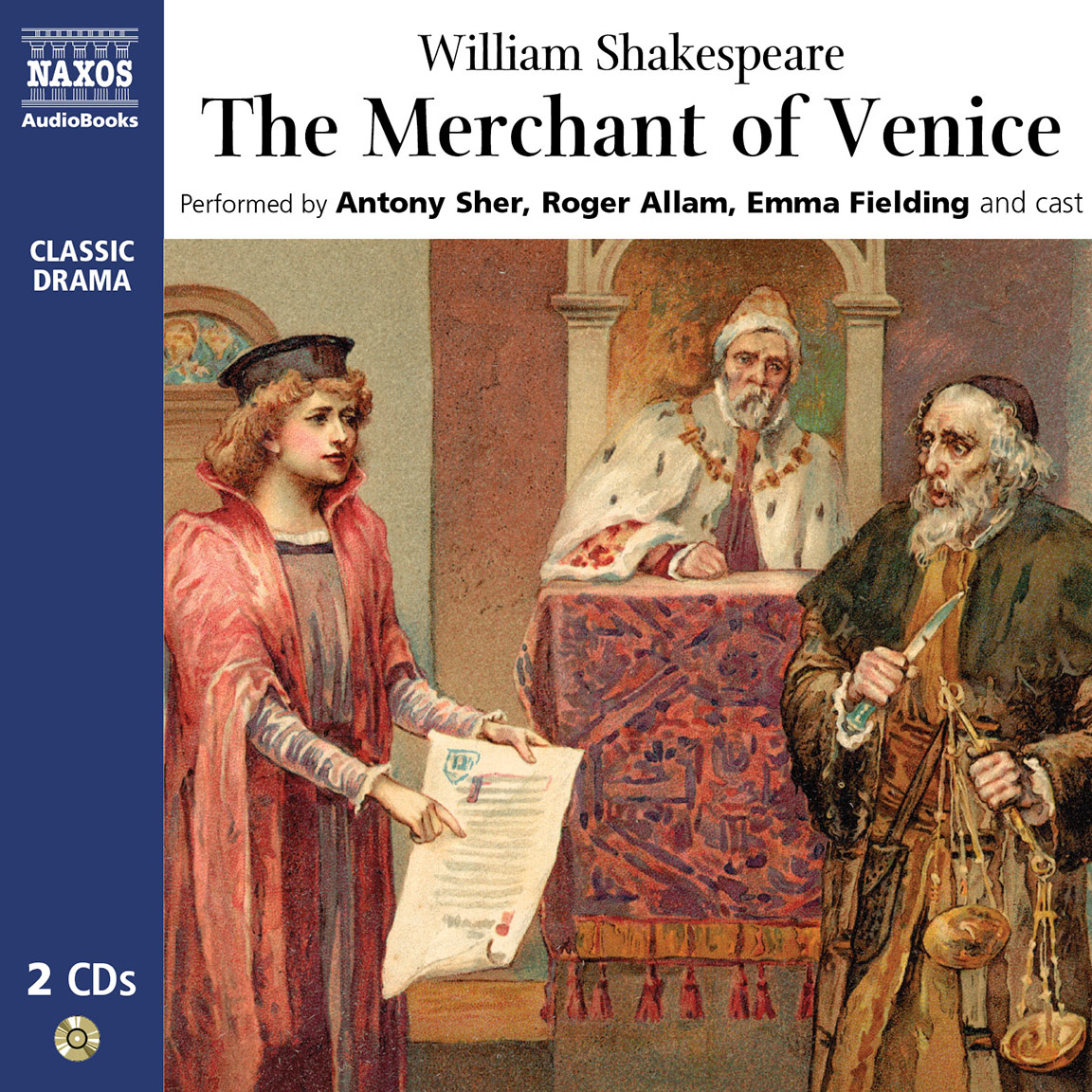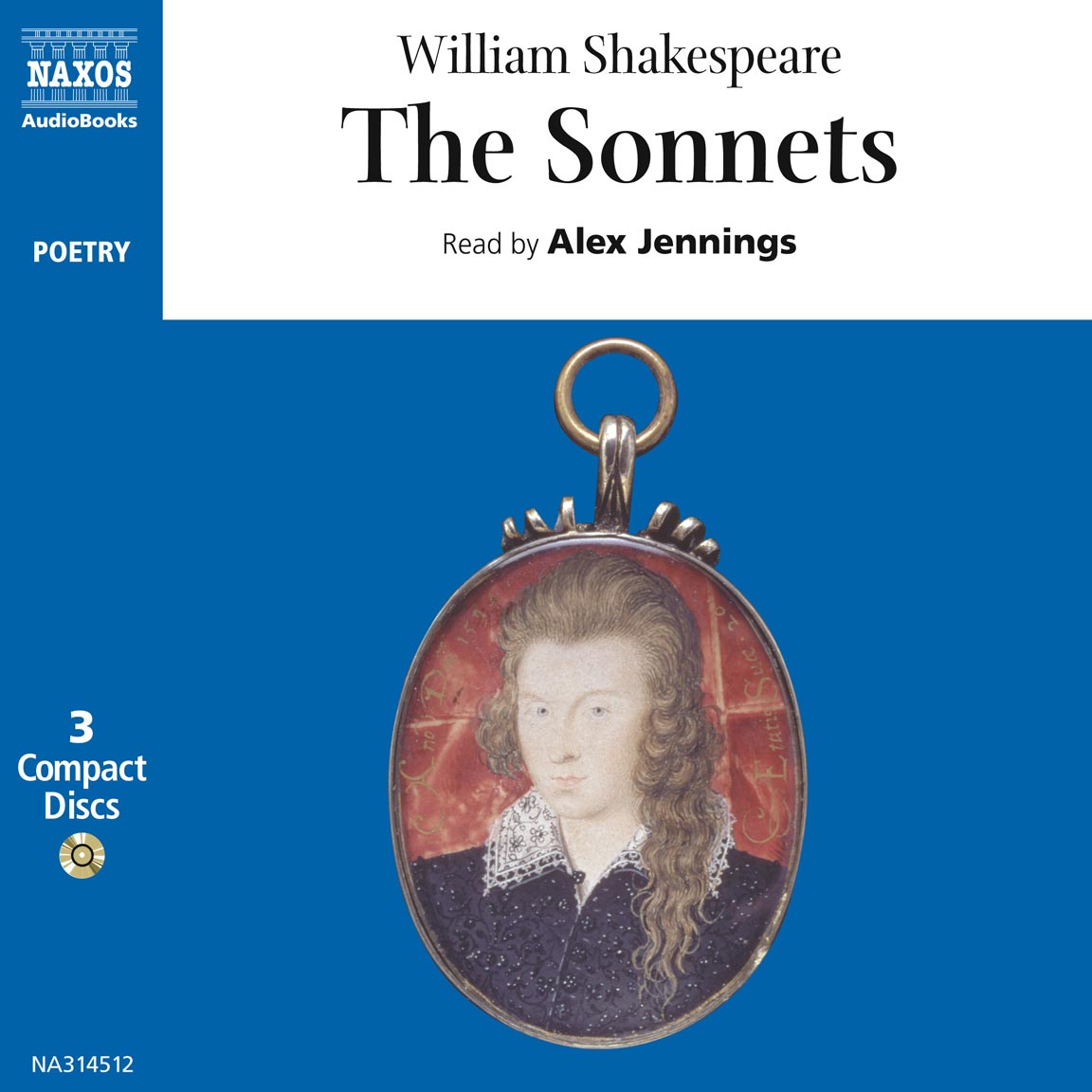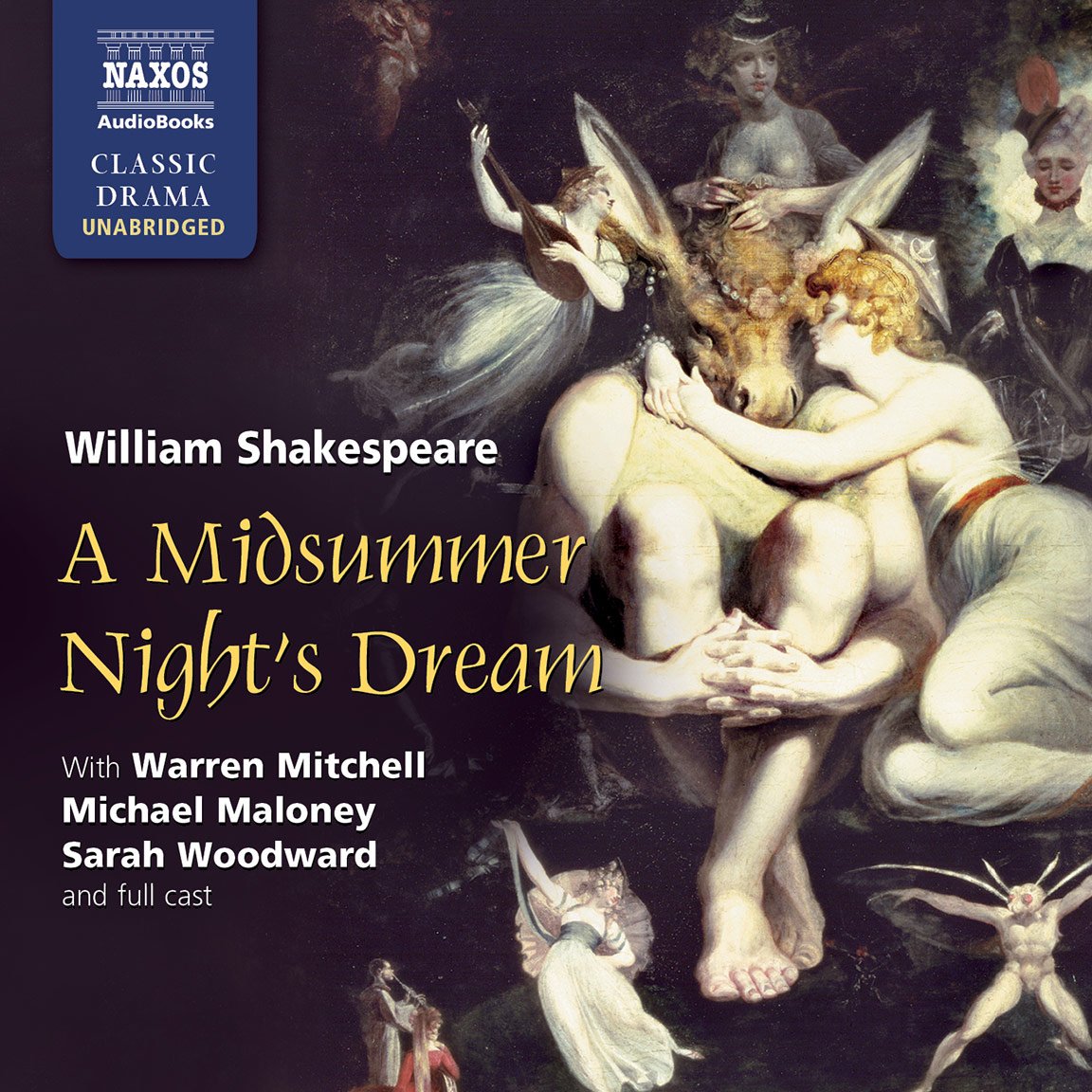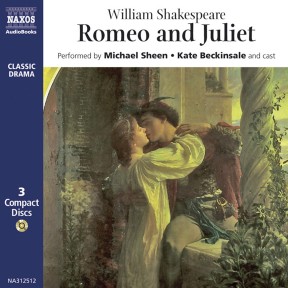
Audio Sample
William Shakespeare
Romeo and Juliet
Performed by Michael Sheen, Kate Beckinsale, Philip Madoc, Norman Rodway, David Bradley, Frances Barber, Edward de Souza, Judy Loe, Fiona Shaw, Heathcote Williams, Anton Lesser, Jasper Britton, Ronan Vibert, Simon Harris, Peter Yapp, John Paul Connolly, Jason Cheater, John Summerfield & Hywell Simons
unabridged
Romeo and Juliet is the play which, in English literature at least, effectively invented the modern love story. Its charm and its power derive from the romantic setting (Verona, an Italian Renaissance city), the youthful innocence and ardour of the lovers, and (perhaps crucially) the excitement and drama created by the opposition which they have to contend with, an opposition which does not simply stem from the older generation but which is starkly present in the feud between their two families and which seems to be supported by the malignity of Fate. The wit, tenderness, dramatic variety and poetic beauty of this play continue to work their spell: it has proved a perennial favourite inspiring, even in our century, works such as the musical West Side Story.
-
Running Time: 2 h 51 m
More product details
Digital ISBN: 978-962-954-693-9 Cat. no.: NA312512 Download size: 81 MB Produced by: Nicolas Soames Directed by: Michael Sheen BISAC: DRA010000 Released: September 2004 -
Listen to this title at Audible.com↗Listen to this title at the Naxos Spoken Word Library↗
Due to copyright, this title is not currently available in your region.
You May Also Enjoy
Cast
- Michael Sheen
- Romeo
- Kate Beckinsale
- Juliet
- Philip Madoc
- Chorus
- Norman Rodway
- Prince
- David Bradley
- Capulet
- Frances Barber
- Lady Capulet
- Edward de Souza
- Montague
- Judy Loe
- Lady Montague
- Fiona Shaw
- Nurse
- Heathcote Williams
- Friar Lawrence
- Anton Lesser
- Mercutio
- Jasper Britton
- Tybalt
- Ronan Vibert
- Paris
- Simon Harris
- Benvolio
- Peter Yapp
- Friar John/Apothecary/Cousin Capulet
- John Paul Connolly
- Balthasar/Servant
- Jason Cheater
- Peter/Abram
- John Summerfield
- Samson
- Hywell Simons
- Gregory
Booklet Notes
Shakespeare had already explored tragedy in his history plays, including Richard III, and in Titus Andronicus. The great series of tragedies, beginning with Hamlet, dates from four or five years later, and in many ways Romeo and Juliet does not belong with them. For a start, it is not a tragedy in the conventional sense because the fate of its protagonists is not a direct consequence of inherent characteristics or failings – whereas (for instance) Lear himself, through his own folly, initiates a chain reaction which leads to his downfall and death. Romeo and Juliet, by contrast, are much more the victims of ill fortune than of their own vice or weakness, even if moralists may seek to suggest that the young lovers are punished for their intemperate lust or failure to obtain parental consent. This moralistic view is in any case certainly not Shakespeare’s: in fact he lavishes upon his subjects extraordinary tenderness of language and feeling. They are ‘star-crossed lovers’ who ultimately bring good to Verona because their deaths shock their feuding families into reconciliation.
Sources
Shakespeare derived his play almost entirely from The Tragicall History of Romeus and Juliet, a poem by Arthur Brooke published in 1562. Brooke, in turn, found the story in a French version of an Italian tale whose origins go back at least to the mid-15th century. Brooke, who writes in clumsy couplets, is keen to stress the moral deficiencies of his hero and heroine – they are in thrall to ‘unhonest desire’, rely on ‘superstitious friars’ and thus are suitably punished – whereas Shakespeare, as we have already noted, is entirely in sympathy with his characters and derives much of his emotional effect from the acuteness of our identification with a couple who are romantically defiant, risking all for the sake of their love.
Summary of the Plot
Act One, Scene 1: A quarrel breaks out between servants and members of two rival families, Capulets and Montagues. The Prince breaks up the fight. Romeo tells Benvolio of his love for Rosaline. Scene 2: Capulet, encouraging Paris to woo his daughter Juliet, invites him to a party that night. Romeo hears about the party and decides to go, hoping to see Rosaline.
Scene 3: Lady Capulet finds Juliet apparently indifferent to the idea of marriage. Scene 4: Romeo, Mercutio and Benvolio will gatecrash the masked ball but feel a sense of foreboding. Mercutio delivers his ‘Queen Mab’ speech. Scene 5: At the party Tybalt recognizes Romeo and has to be restrained by Capulet. Romeo sees and falls in love with Juliet, discovering her name from the Nurse. Juliet dances with Romeo and is equally smitten.
Act Two, Scene 1: Romeo enters Juliet’s garden, while his friends look for him. Scene 2: Romeo overhears Juliet acknowledge her love for him. He reveals himself, confesses his love for her, and undertakes to make arrangements for their marriage the next day. Scene 3: Romeo finds Friar Lawrence gathering herbs and requests his help in marrying Juliet. Scene 4: Tybalt has challenged Romeo. The Nurse finds Romeo who sends her back to Juliet with the message that she is to come to Friar Lawrence’s cell that afternoon for their marriage. Scene 5: The Nurse returns to the impatient Juliet to tell her of the arrangements. Scene 6: Romeo and Juliet depart to be married by the Friar.
Act Three, Scene 1: Mercutio and Romeo meet Tybalt. Romeo fails to prevent the others from fighting; Mercutio is killed, and Romeo swiftly avenges his friend by slaying Tybalt. When the Prince discovers these events, Romeo is banished from Verona. Scene 2: The Nurse tells Juliet the bad news, but adds that Romeo will still visit her that night. Scene 3: Romeo hears the news of his exile from the Friar. The Nurse finds Romeo beside himself with grief. Scene 4: Capulet promises Juliet to Paris and sets the wedding date three days hence. Scene 5: Romeo and Juliet part in the morning. Juliet’s parents threaten to disown her if she will not marry Paris.
Act Four, Scene 1: Paris tells the Friar that he must officiate at his and Juliet’s wedding on Thursday – two days away. Juliet asks the Friar for help and he outlines a plan involving a sleeping draught whereby the marriage with Paris may be avoided and she may join Romeo. Scene 2: Juliet makes no apparent difficulty when her father arranges the wedding with Paris. Scene 3: Juliet, not without anxiety, drinks off the potion provided by the Friar. Scene 4: At dawn Capulet oversees preparations for the wedding-party. Scene 5: Juliet appears to be dead. The Friar advises her family to make ready for her funeral.
Act Five, Scene 1: Romeo, in exile at Mantua, hears that Juliet is dead in the family vault. He buys poison from an apothecary and determines to join her. Scene 2: The Friar hears from a colleague that his message never reached Romeo and thus decides to be with Juliet when she wakes from the effects of the potion. Scene 3: Romeo, arriving at the tomb so that he may die with her, finds Paris (who has brought flowers for the seemingly dead Juliet) and kills him. He takes the poison. Now the Friar comes, discovers the dead Romeo and Paris and begs Juliet, now awake, to flee the place. She, finding Romeo dead, kisses him and then kills herself with his dagger. When the Prince and the fathers of the dead lovers arrive, reconciliation between the warring families is at last achieved.
Comment
Romeo and Juliet is the play which, in English literature at least, effectively invented the modern love story. Its charm and its power derive from the romantic setting (Verona, an Italian Renaissance city), the youthful innocence and ardour of the lovers, and (perhaps crucially) the excitement and drama created by the opposition which they have to contend with, an opposition which does not simply stem from the older generation but which is starkly present in the feud between their two families and which seems to be supported by the malignity of Fate. The richly realized context of their love is additionally enhanced by (for example) the superbly concrete character of Juliet’s old Nurse, who fondly encourages the pair until the ‘better’ offer of Paris’s love comes along. The Nurse’s sentimentality and materialism are all too convincing, and are symptomatic of the way in which Shakespeare suggests that none of the other characters can match the lovers for sincerity and steadfastness, especially once the brilliant and impulsive Mercutio has gone. Youthful as they are, we see that they are the people who grow and mature as the play progresses: Romeo, as sensitive and intelligent as the later Hamlet, realises that his ‘love’ for Rosaline is no such thing but merely infatuation: however instant the development of his love for Juliet may be, it is ‘the real thing’, as is Juliet’s for him. The imagery of light and religion which Shakespeare consistently bestows upon the lovers is suggestive of the truth and value of their feelings: at the masked ball where they first meet, Romeo’s immediate reaction to Juliet is that ‘she doth teach the torches to burn bright’, and their first words to each other are all built on the conceit that he is a ‘pilgrim’ and she a ‘saint’.
The wit, tenderness, dramatic variety and poetic beauty of this play continue to work their spell: it has proved a perennial favourite inspiring, even in our century, works such as the musical West Side Story.
Notes by Perry Keenlyside
